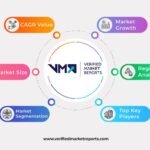The Zinc L-Monomethionine market is experiencing robust growth due to rising awareness of nutritional deficiencies, especially zinc-related health conditions, across both developed and developing regions. As a chelated form of zinc bound with L-methionine, Zinc L-Monomethionine is recognized for its superior bioavailability and absorption efficiency compared to inorganic zinc salts. This has made it a preferred choice in dietary supplements, animal nutrition, and fortified foods. The human nutrition sector is particularly benefiting from the increasing consumer inclination towards immune support and metabolic health, especially post-pandemic. Zinc L-Monomethionine, owing to its enhanced absorption, is gaining traction in formulations aimed at addressing zinc deficiency-related complications such as impaired growth, weakened immune function, and skin disorders. Additionally, the aging global population and rising prevalence of lifestyle diseases have made preventive healthcare and dietary supplementation central themes, thereby reinforcing the demand for effective trace minerals like Zinc L-Monomethionine. The market is also experiencing an upsurge in demand from the sports nutrition sector where micronutrient optimization plays a key role in athletic performance and recovery.
In parallel, the animal feed and livestock segment remains another vital driver of Zinc L-Monomethionine market growth. With increasing regulatory restrictions on the use of antibiotics as growth promoters, particularly in Europe and North America, the industry is turning to high-quality mineral chelates to enhance immunity, digestion, and overall animal productivity. Zinc L-Monomethionine, with its superior retention and minimal excretion profile, aligns well with environmental sustainability goals while ensuring optimal livestock health. Moreover, innovations in encapsulation technology and customized premixes are helping manufacturers expand their product applications in aquaculture, poultry, and ruminants. The market dynamics are further shaped by evolving consumer expectations for clean-label, non-GMO, and organic-certified animal products, thereby compelling feed manufacturers to incorporate more bioavailable and ethically sourced micronutrients. Regional expansions, technological advancements in production methods, and collaborative ventures between nutraceutical and feed additive companies are intensifying competition while simultaneously expanding market penetration across Asia-Pacific, North America, and parts of Europe. As personalized nutrition and precision livestock farming gain momentum, Zinc L-Monomethionine is poised to remain a strategic component in the broader global mineral nutrition market.

